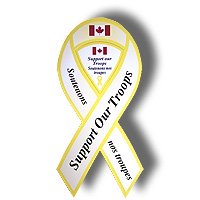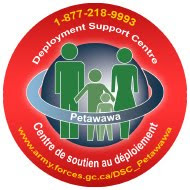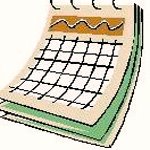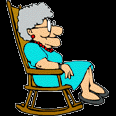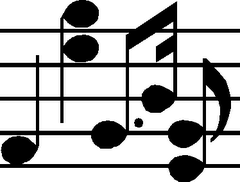Our tour in Kandahar has been a time I shall never forget. I had the distinct pleasure of serving with the Tactical Uninhabited Aerial Vehicle (TUAV) flight as a part of the Battle Group of Op Athena, Task Force 3-06 at Kandahar Air Field (KAF) in Afghanistan.
The flights are comprised of CF members from all three elements with the most current flight, roto three, being made up of members from 403 Helicopter Operational Training Squadron and the 4th Air Defence Regiment both from CFB Gagetown. I volunteered for the job because of my experience and qualifications packing parachutes.
Our job was to maintain visual surveillance for the troops on the ground with a large remote control aircraft. Most of us had trained together a year before our tour started and developed a strong friendship before even landing in this theater of operations. Air Force, Army, Navy, French and English, men and women, with such a diverse group we have worked together as a seamless team with very few faults or problems.
At first I was a little nervous but mostly excited about coming here. But as soon as we got off of the aircraft there was a small party of people to welcome and help us into the KAF routine. When I first volunteered for this tour I didn't really realize how important Canada's role here was until that first welcome speech given to us by an American General. He stated that "Having a Canadian face on this conflict will make the rest of the world realize just how vital it is to secure this country and establish their new government. Because the world recognizes your ethical and moral values and that you won't enter or be pushed into a conflict unless you truly believe in its goal." Hearing this from a General from another country emphasized this statement even more.
We started our training in September of 2005 and spent some time at Canadian Forces Base Wainwright, then CFB Suffield and then more training at CFB Edmonton. That was when I started to grow fond of the "field life" that I had missed out on at an Air Force base. Most of our TUAV Flight is from CFB Edmonton and I think that is where I learned the most. Not only the pre-deployment training which taught soldiering skills relevant to the mission, but also taught us about our team members. Spending time with them we had some dinners and barbeques and got to know each others' families. It takes a certain kind of person to be a military spouse. Strong and supportive doesn't even begin to describe them. We all had to spend a lot of time away from our families - some of our guys have been in KAF for nine months!
I can't speak for everyone but from my perspective, (and I'm sure not everyone will be able to understand this) but it brought my wife and I even closer, and made me realize the things I have to change about myself to be a better father and husband. I also realized, (which I'm sure thousands did before me) that it's not easy being a husband, father, and a soldier. But we just keep reminding ourselves that what we do here protects them at home. Having a wife that grew up as a "base brat" helped since she already had a firm understanding of the military life since her father and grandfather were both in the military. Knowing there is a strong support network at home for your family also helps alleviate the separation anxieties.
Now I'm not going to throw tales at you that we lived in holes in the ground and ate bugs and stuff like that. We stayed in semi-permanent shelters, rarely left the base but lived by the pager waiting to be called to work. We lived with the Battle Group and watched them come and go. Now that is a hard life which I can't even begin imagine! These men and women go out on the front lines for around a month at a time. They have bottles of water for their showers, eat field rations, and then they come back for a day or two, have a hot shower, do their laundry, have a warm meal and then go back out.
Corporal Aaron Dycke receiving the General Campaign Star from Brigadier-General Timothy Grant at Kandahar Air Field, Afghanistan in February 2007. CREDIT: DND
Listening to them talk you have to admire their courage and bravery. I remember hearing one saying to his buddy in passing "man, I didn't think I was coming home from this one." Personally I felt that I wasn't doing enough to help them but whenever I mentioned I was with TUAV I always got a big "thank you!" from them. When I heard that because we where there, watching, flying over head they could sleep easier at night just hearing the sound of our engines knowing someone was watching out for them and they knew they weren't alone it made me feel like my little contribution was worth it.
I'll admit there where some times when we first came here when we got rocketed or mortared that I worried for my mortality but after a month we became desensitized to them. And they became more of a nuisance than anything. We'd hear the explosion, have to stop work, get our gear on go to the bunkers and sign in and wait for the all clear and then go back to work. But it's these protocols that keep us alive. Frustrated at times with the crazy hours of operations or trying to order parts and living on mess food we all developed an odd sense of humor that was unique in our own. One has to have a dark sense of humor to keep their sanity in check in a place like this.
All in all it was an amazing experience that I wouldn't have traded for anything. I learned a lot about myself and my fellow man, got a new found respect for life, deepened my love of our country, and I know this may sound cheesy to some but after years of absence at my own fault I even found God again. I also had some amazing instructions in patience and tolerance and feel that I have matured a great deal. This... is the military life.















 .
.






















